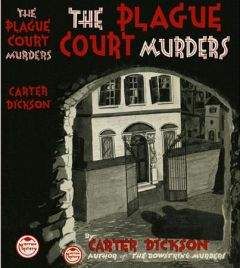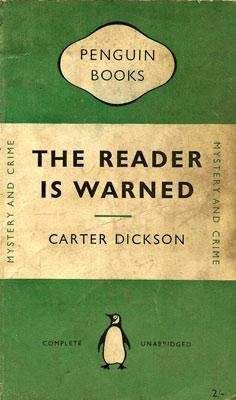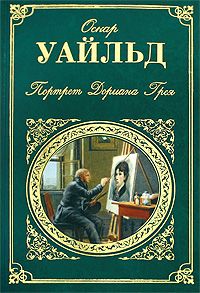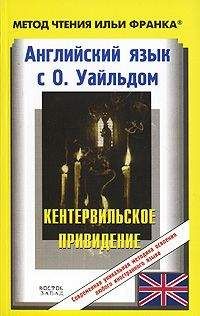"Well?"
"They said you'd probably be here, but there isn't a telephone here and we couldn't reach you. You're wanted back at the Yard...”
Masters' hands closed on the spikes of the gate. He seemed to have frozen there, and it was several seconds before he got out:
"Not-anything-another ?"
"Don't know, sir; may be. It's a call from Paris. Everybody in the translation department had gone home. Chap was jabbering French so fast the operator could only get half what he said. He said he'd call again at nine o'clock, and it's nearly half past eight now. It's important, sir, and it's something about murder. . ."
"Go through the routine, photographs, search and fingerprints," Masters said curtly. He jammed on his hat and hurried out to the car.
XVIII
THE WITCH ACCUSES
THAT was the night before the day of the startling accusation made by Lady Benning. During the fifteen hours that intervened, I had by pure accident stumbled on a point that nearly provided a solution to the riddle.
If this were anything but an account of facts, I should describe a breakneck rush back to town to intercept that call; an inquiry until far into the morning, without food or sleep. But a real murder case is not all "Thou-art-theMan." There are the intervals when you suddenly realize that the business of life must go on as usual; the intervals of torture and wit-puzzling, and of futile breathings on a mirror already beclouded. For instance, I had a. dinner engagement that night. It was with my sister, a gentle Gorgon, and it would never have occurred to any of the family to break an engagement with Agatha. In fact, my chief concern was in the realization - when I learned how late it was - that I should be an hour late even if I did not bother to dress. I had forgotten all about it; still, I must be there.
Masters drove us back to Town, and both the Inspector and I promised to be at H.M.'s office at eleven o'clock next morning. He was driving H.M. home to Brook Street; I dropped off in Piccadilly, caught a Kensington bus, and was pitched off at Agatha's in time to be smuggled in the side door for a brush-up before I faced whatever guests might be. Surprisingly, there was only Angela Payne, my sister's less superannuated crony, who is supposed to be my future wife. She was sitting by the fire in Agatha's cutglass drawing-room, wriggling with excitement and chewing that jade cigarette-holder which had nearly poked out so many people's eyes at intimate dinners. Angela is very modern, which I am not; she has her hair shorn and displays a great deal of back.
The moment I walked in, I knew I should be a Personage as a bearer of news about the murder, and pumped by two terrifying experts. That is probably why the dinner was so intimate. Agatha did not even mention my lateness. But, the moment we sat down to one of those clear soups which are about as sustaining as something the conjuror pours out of different jugs on the stage, the attack began. I was puzzling over the problem of Mrs. Sweeney, and kept the defense fairly well. Agatha had said to Angela, as though reprovingly, "Of course he can't tell us anything, but at least, in courtesy to me, he ought to explain his lateness."
During the fish, Angela tossed her bomb in among the candles. She asked when the inquest would be, and I said tomorrow.
"And," she inquired, "will poor Mr. Darworth's wife be here for it?"
This gave even my sister a surprise. "Was Mr. Darworth," she inquired, "a married man?"
"But I know her!" said Angela triumphantly.
At this point I had become so intent that I refused Sauterne. Angela said: "Well-good-looking, possibly, if you like that type. Thin. Tall. Brunette. They say, Agatha, dear, that she had low beginnings: in a circus or a Wild West show or something.... But an actress! Oh, yes, I'll admit..”
"You know her personally?"
"Well, not exactly. . . ." She was talking to Agatha now. "She would probably have run to fat by this time, because that was years ago. Don't you remember, my dear, the winter in Nice-'23 or '24 - I think the year dear Lady Bellows had such bad attacks of acute alcoholism, or am I thinking of somebody else that fell over the railing from f the dress circle, and all the rude people in the gallery positively laughed? - well, anyway, it was that English Repertory Company, and all the papers said it was so very fine? They were reviving Shakespeare," explained Angela, as though she were talking of movements for resuscitating the drowned, "and those delightful Restoration things by Which - Wycherley
"Don't hiccough, Angela," said my sister severely. "Well?"
"They said she was superb in that Twelfth Night thing, or one called `The Plain Dealer,' was it? But I didn't see those; I saw one where she was a middle-aged, heavy-set frump, something like a schoolmistress, you know, Agatha. ... Aren't you listening, Ken?"
I was.
"Mrs. Sweeney-" The alleged Mrs. Sweeney
When the duties of the evening were over, and I had got away without wringing anybody's neck, I walked back trying to puzzle the thing out. If Mrs. Sweeney were Glenda Watson Darworth, as seemed likely, then many things could be explained over a trail stretching far back into the past. Glenda Watson's personalities were many and various, but always profitable. She had fastened on Darworth, either by accident or design, back in the days when Darworth had bunglingly tried to poison a rich wife. She had been with Elsie Fenwick Darworth when the happy couple returned to England; she could have been, and undoubtedly had been, instrumental in the disappearance of the first wife. Darworth buys the house in Brixton; and what lay buried there-say in that filled-up well became a deep vein of blackmail. The humble assistant turns on Darworth, saying, "Buy my silence!" Or possibly, "Buy it with marriage." The erstwhile lady's maid sets herself up on the Riviera with Darworth's money, goes in for theatricals, amuses herself, and waits. There's the patient strength of mind for you: no marriage, no tightening the noose, until such time as it can become incontestably legal....
Then she reappears, with new plans and fresh notions for the plunder of the gullible. Has she still a hold over him? Yes. Even if Elsie Fenwick's bones were never found, bones that could be identified incontestably - and, on the evidence of a few bones, Eugene Aram was hanged eleven years after he had stabbed Daniel Clark in a cave - still Darworth's own record could not stand her threat to turn King's evidence.
So? I remember I was walking fast past the rails of Hyde Park at this point, mumbling to my pipe and arousing the curiosity of pedestrians. So what? It looked very much as though Glenda Watson constituted the brain behind Darworth's magnetic Front. She sets out to exploit, financially, his talents. All his victimizing of the wealthy credulous had begun - when? Four years ago, just after his marriage to Glenda Watson in Paris, and Mrs. Sweeney took up her secluded residence at Brixton. She is after money; quite content never to play actually the part of Darworth's wife ... because his appeal is to women, and he will be more valuable as a romantic bachelor.
But would she have been content to grub along in this minor part? And then I remembered: she didn't. There were those long absences from Brixton, of which we had heard: vacations of months during which Darworth was taking a holiday from his occult frauds, and Mrs. Sweeney became again the talented Mrs. Glenda Darworth at the Villa d'Ivry, Nice. She and Darworth were slowly building up a fortune; they had provided themselves with a half-witted scapegoat in case the police interfered...
But, unfortunately, this did not help us. When I got back to my flat, wet with perspiration from stalking along the streets like a two-miler, I resisted an impulse to get into communication with Masters. All this was probably true enough, but, so far as concerned the identity of the murderer, it only added another suspect to an already bewildering list. Where was the woman's motive for murder?
Besides, there is a fable about the goose and the golden eggs....
I went to bed, and, of course, overslept.
The morning of the 8th of September was fine and dear, with an autumnal tinge in the air. Far from being on time for the appointment at eleven o'clock, I did not wake up until nearly then. Breakfast was a matter of haste and profanity; I tried to scan the papers while hurrying towards Whitehall, and only gathered that the "Plague Court double tragedy" had erupted in one form or another on nearly every page. The gilt dock in the tower of the Horse Guards was striking the half hour as I turned down towards the Embankment. And, close down towards the garden behind the War Office, a purple touring-car was parked....
I should not have noticed it at all, having one eye on the newspaper, if it had not been for an impression that somebody in the tonneau had just jerked back out of sight. The back of the car was towards me, and I could have sworn that an eye was still peering out through the rear-window. Anyhow, I turned back to the little door that leads up to H.M.'s lair, just as the door opened. Marion Latimer came out, laughing, and Halliday behind her.
If there were anything weighing on the mind of either, you would never have known it. The girl was radiant, and Halliday looked better than he had looked for months. He had groomed himself from polished shoes to sandy mustache; the twinkle had come back to his heavy-lidded eyes, and he made a swaggering salute with his umbrella.
After saying, "What ho, what ho!" and uttering a variety of noises to indicate greeting, he added: "Thunder and lightning. Enter third murderer, and you look it. Go up and join the other two. Your friend H.M. is having a fine time, but poor old Masters is on the edge of homicidal mania. Ho ho ho. I will not be depressed today."
I said I supposed they had been on the grill. Marion was trying to keep back laughter; she punched Halliday in the ribs and said, "In public! Will you stop it? - I suppose you're invited to Mr. H.M.'s little party tonight, Mr. Blake? Dean's going. It's at Plague Court."
"We are going," he said firmly, "to motor to Hampton Court and have lunch. Who cares about tonight?" He took a swing at the air with his umbrella. "Come along, wench. I'm not likely to be arrested. Come along."
"It's all right," the girl told me, and looked round the street as though every stone in smoky London pleased her. "Mr. H.M. does buck you up, rather. He's a strange old fellow, and he keeps on telling me about the girl in the pictures who took off her clothes; but he - well, you believe in him. He says everything's all right, and he'll tell me where Ted is, and everything.... I say, I'm sorry, but I can't control Dean...."
I watched them cross the street, Halliday twirling his umbrella and apparently using it for a pointer in a lecture about the beauties of London; down past the yellowing trees, and towards the smoky river glistening beyond the parapet. They did not see the touring-car, or seemed not to do so. They were both laughing.
Up in H.M.'s office I found a different scene. H.M., who had neglected to put on a necktie that day, was piled into his usual chair with his feet on the desk, sleepily smoking a cigar. Masters was glowering out of the window.
"There's news," I said, "and it may be big news. Look here, through sheer chance last night I discovered who Mrs…."
H.M. took the cigar out of his mouth.
"Son," he observed, squinting down it through his big spectacles, "if you're about to tell us what I think you are, then I must warn you you're goin' to be murderously assaulted. By Inspector Humphrey Masters. Eh, Masters? The French they are a funny race. Burn me, but it appalls the Anglo-Saxon mind how you can print slap out in a Frog newspaper things that'd get you in a libel-suit if you whispered 'em in this room." He waved a paper. "Voici `l'Intransigeant,' mon tres cher panier de salade. Ecoutez. 'LE MYSTERE DE PLAGUE COURT. UNE PROBLEMS FORMIDABLE! MAIS RIEN NEST DIFFICILE POUR NOTRE CHEF DE SURETE, M. LAVOISIER GEORGES DURRAND!' Nous aeons l'honneur de vous presenter" ---"Want to hear it?" inquired H.M., leering. "Public official has a cut at solving the thing. Y'see, the whole trouble is this. . .
A buzzer sounded at his desk. He pressed another, took his feet off the desk, and his whole expression changed.
"To your posts," he said. "Lady Benning is on her way up."
Masters turned round sharply. "Lady Benning? What's she want?"
"I think she wants to accuse somebody of murder," said H.M.
Nobody spoke. Smoky sunlight lay on the frayed rug, and dust motes moved in it. But the mere pronouncing of that name, Lady Benning, had somehow put a chill on us. She was here and everywhere; unseen, but a presence.
During what seemed like minutes we waited. Then we heard a tap on the staircase out in the hall; a pause, then another tap. She had condescended at last to use a cane. I remembered the purple touring-car parked in the street, and who must have been watching as those others went past in uproarious happiness.... The tapping came on....
Your first impression was pity; not altogether for the infirmity. Masters opened the door for her, and she came in smiling. On the night before last you might have guessed her age as sixty; now you could have added many more years. The Watteau marquise was still there, in her way; yet now she had bedaubed it too much with rouge, lip-salve, and rather unsteady eyebrow-penciling. The eyes were brilliantly alive, and they smiled and roved.
"So you are all here, gentlemen," she said, in a voice that cracked slightly and raised in the scale. She made a delicate attempt at clearing her throat. "That is good. That is very good. And may I sit down? Thank you so much." She nodded her large hat, under which the waves of the white hair curved, and it shadowed the wrinkles. "I have heard my late husband speak of you, Sir Henry. So good of you to allow me to see you."
"Well, ma'am?" said H.M.
He spoke sharply, with the deliberate intent of rousing her; but, as she only smiled and blinked, he prompted:
"You said that you had a communication of some sort you wished to make?"
"Dear Sir Henry. And you-and you-" After a pause she took one hand off her cane and put her fingers gently on his desk. "Are you all blind?"
"Blind, ma'am?"
"Do you mean that clever men like you - and you - haven't seen? Must I tell you? Do you really mean that you don't know why dear Theodore left town and rushed away to his mother in that mad hurry? Either out of fear, or in case he should have to tell what he might not wish to tell? Don't you know what he guessed, and now he knows?"
H.M.'s dull eyes flickered open. She leaned abruptly towards him. Her voice was still low, but it was as though another of Darworth's ghoulish toys say a fantastic, unholy jack-in-the-box-had snapped open.
"That Marion Latimer is mad," said Lady Benning.
Silence....
"Oh, I know!" She spoke more sharply, and peered at us. "I know how you would be deceived. You think that because a girl is young, and pretty, and can laugh at your man's jokes, and goes swimming and diving and playing tennis on two strong legs, that there can't be any maggot up here. Don't you? Don't you?" she demanded, and her glance flickered round again. "You wouldn't hesitate to believe it of me, though. And why? Because I am old, and because I believe things you are simply too blind to see. That's why; that's the only reason.




